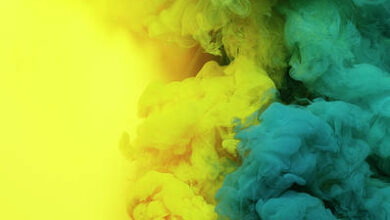PyQtGraph – Getting Image Item of Image View

In this article, we will see how we can get an image item of the image view object in PyQTGraph. PyQtGraph is a graphics and user interface library for Python that provides functionality commonly required in designing and science applications. Its primary goals are to provide fast, interactive graphics for displaying data (plots, video, etc.). Widget used for display and analysis of image data. Implements many features like displaying 2D and 3D image data. For 3D data, a z-axis slider is displayed allowing the user to select which frame is displayed. Displays histogram of image data with movable region defining the dark/light levels, editable gradient provides a color lookup table, frame slider may also be moved using left/right arrow keys as well as pgup, pgdn, home, and end. Image item is the image object which gets displayed in the image view.
We can create an image view with the help of the command given below.
# creating a pyqtgraph image view object imv = pg.ImageView()
In order to do this we use getImageItem method with the image view object
Syntax : imv.getImageItem()
Argument : It takes no argument
Return : It returns ImageItem object
Below is the implementation.
Python3
# importing Qt widgetsfrom PyQt5.QtWidgets import *# importing systemimport sys# importing numpy as npimport numpy as np# importing pyqtgraph as pgimport pyqtgraph as pgfrom PyQt5.QtGui import *from PyQt5.QtCore import *from collections import namedtupleclass Window(QMainWindow): def __init__(self): super().__init__() # setting title self.setWindowTitle("PyQtGraph") # setting geometry self.setGeometry(100, 100, 600, 500) # icon icon = QIcon("skin.png") # setting icon to the window self.setWindowIcon(icon) # calling method self.UiComponents() # showing all the widgets self.show() # method for components def UiComponents(self): # creating a widget object widget = QWidget() # creating a label label = QLabel("GeeksforLazyroar Image View") # setting minimum width label.setMinimumWidth(130) # making label do word wrap label.setWordWrap(True) # setting configuration options pg.setConfigOptions(antialias=True) # creating image view object imv = pg.ImageView() # Create random 3D data set with noisy signals img = pg.gaussianFilter(np.random.normal( size=(200, 200)), (5, 5)) * 20 + 100 # setting new axis to image img = img[np.newaxis, :, :] # decay data decay = np.exp(-np.linspace(0, 0.3, 100))[:, np.newaxis, np.newaxis] # random data data = np.random.normal(size=(100, 200, 200)) data += img * decay data += 2 # adding time-varying signal sig = np.zeros(data.shape[0]) sig[30:] += np.exp(-np.linspace(1, 10, 70)) sig[40:] += np.exp(-np.linspace(1, 10, 60)) sig[70:] += np.exp(-np.linspace(1, 10, 30)) sig = sig[:, np.newaxis, np.newaxis] * 3 data[:, 50:60, 30:40] += sig # Displaying the data and assign each frame a time value from 1.0 to 3.0 imv.setImage(data, xvals=np.linspace(1., 3., data.shape[0])) # Set a custom color map colors = [ (0, 0, 0), (45, 5, 61), (84, 42, 55), (150, 87, 60), (208, 171, 141), (255, 255, 255) ] # color map cmap = pg.ColorMap(pos=np.linspace(0.0, 1.0, 6), color=colors) # setting color map to the image view imv.setColorMap(cmap) # Creating a grid layout layout = QGridLayout() # minimum width value of the label label.setFixedWidth(130) # setting this layout to the widget widget.setLayout(layout) # adding label in the layout layout.addWidget(label, 1, 0) # plot window goes on right side, spanning 3 rows layout.addWidget(imv, 0, 1, 3, 1) # setting this widget as central widget of the main window self.setCentralWidget(widget) # getting image item of image view value = imv.getImageItem() # setting text to the label label.setText("Image Item : " + str(value))# create pyqt5 appApp = QApplication(sys.argv)# create the instance of our Windowwindow = Window()# start the appsys.exit(App.exec()) |
Output :






